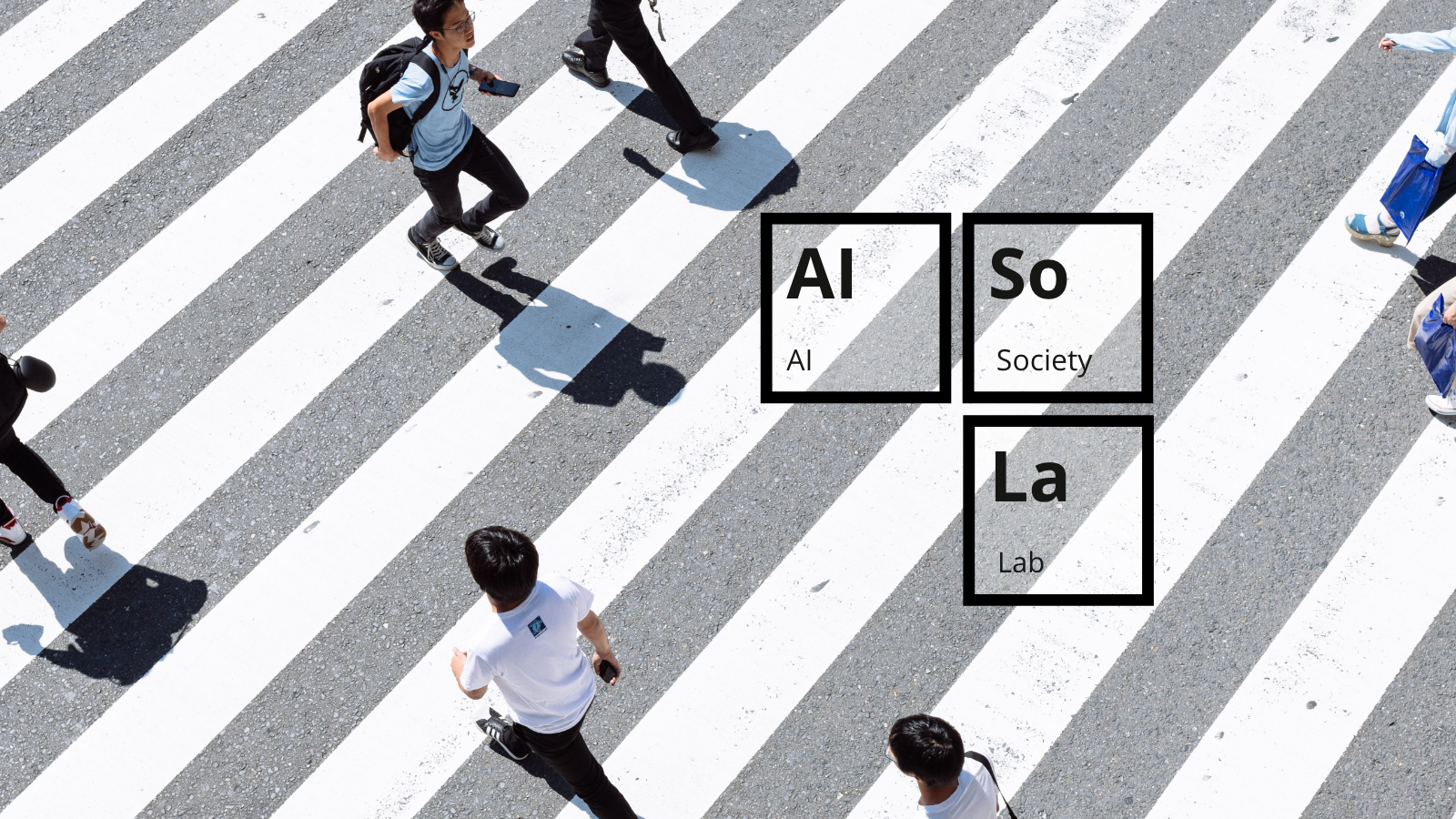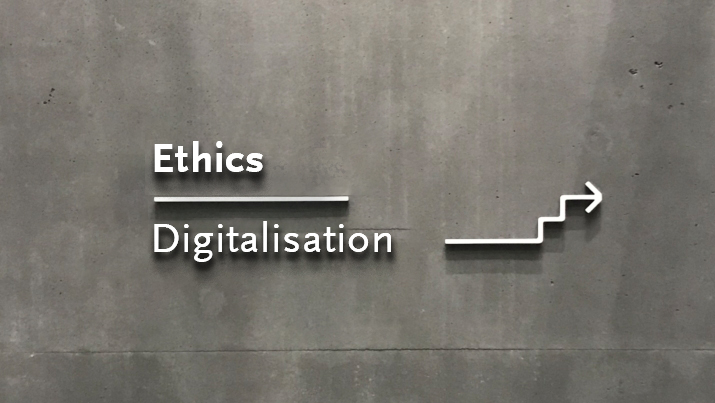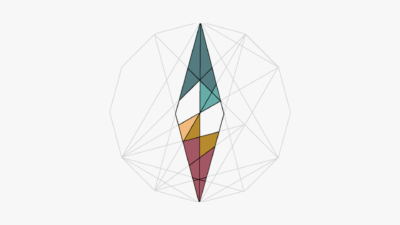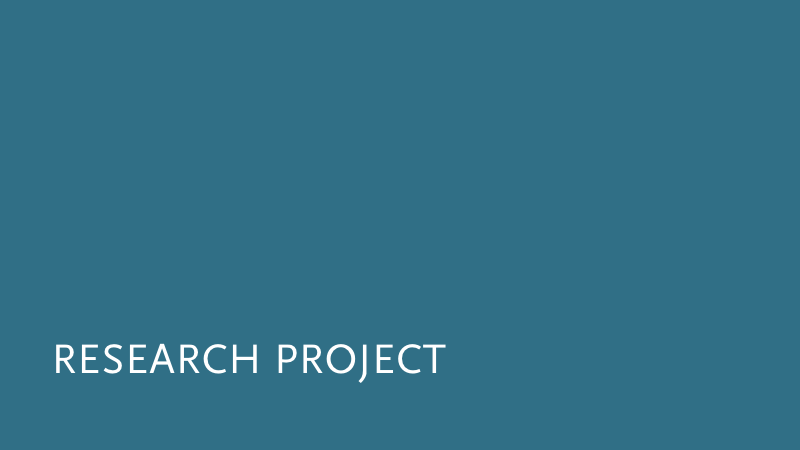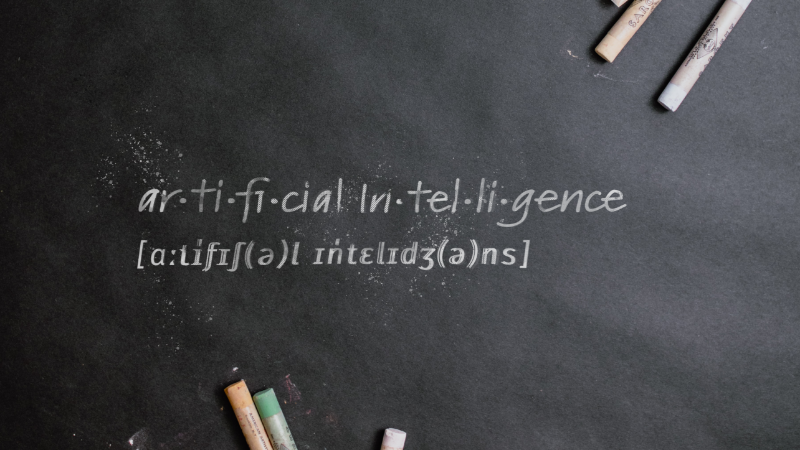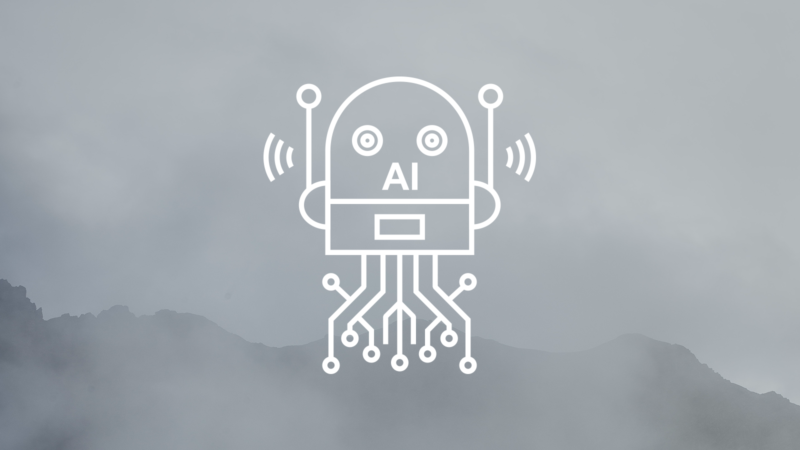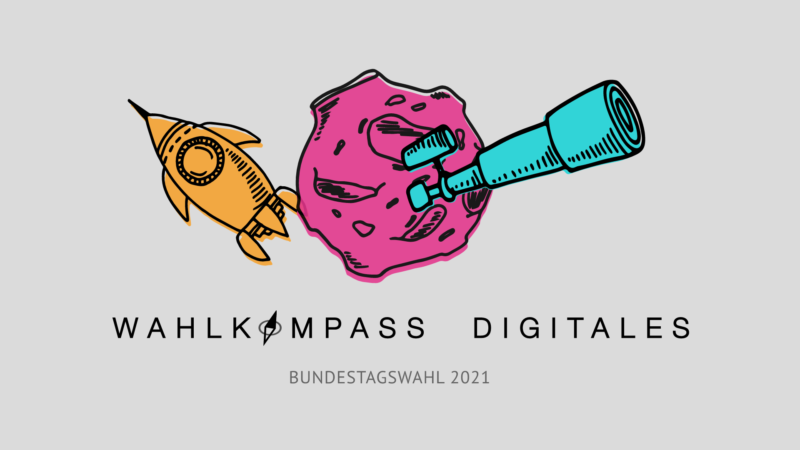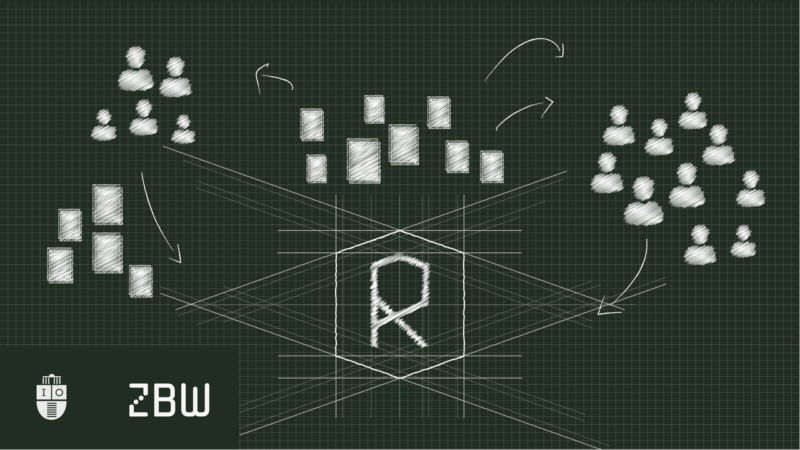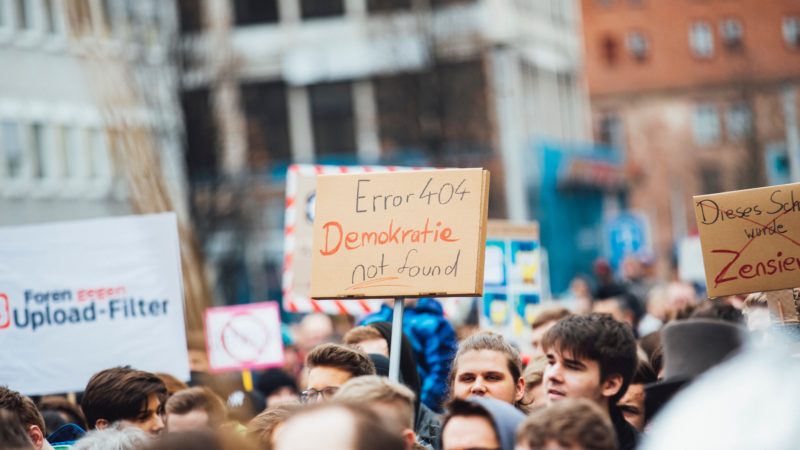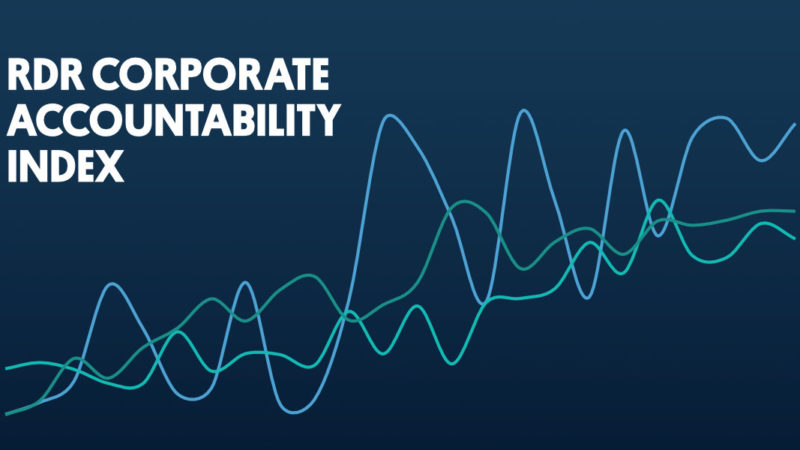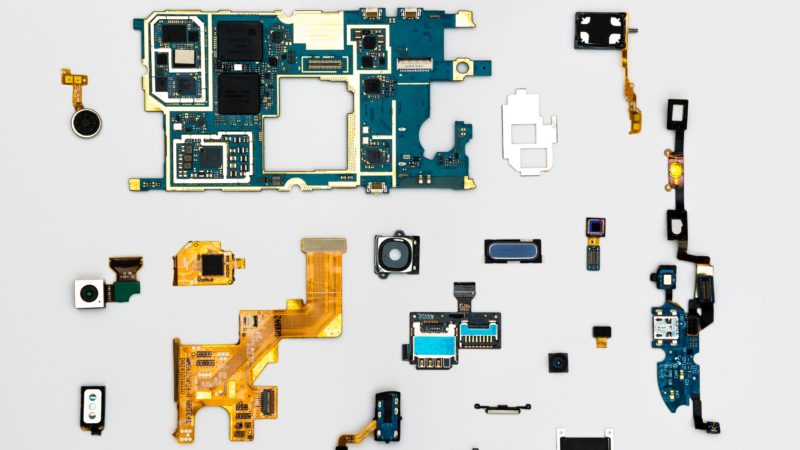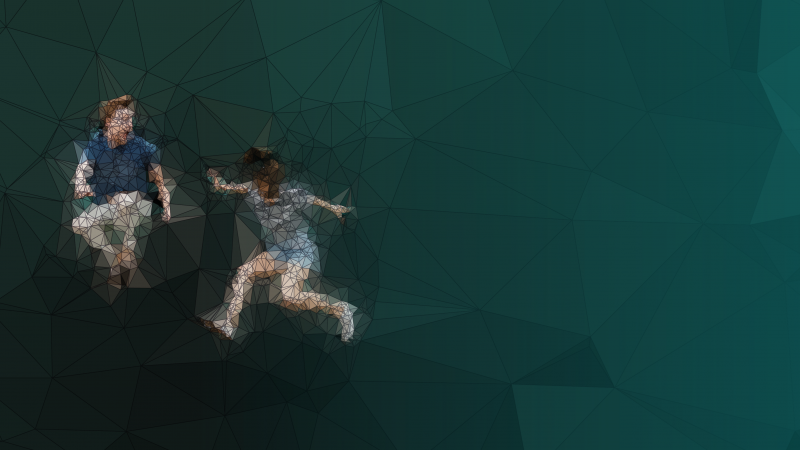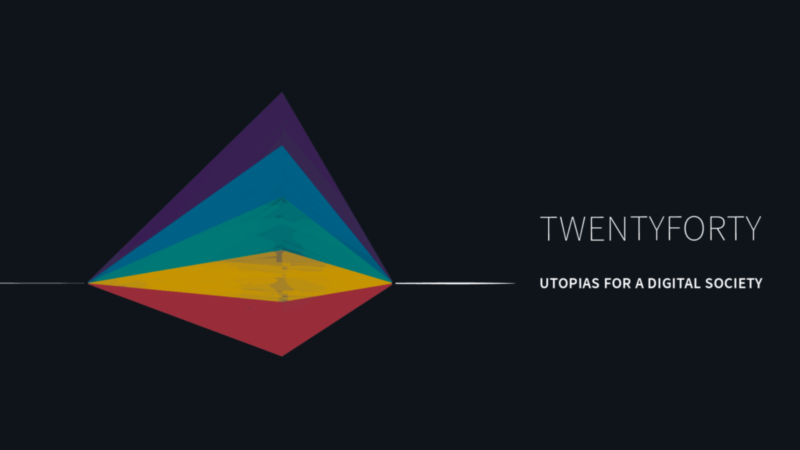
Problem-oriented research on Internet & Society
The Alexander von Humboldt Institute for Internet and Society (HIIG) aims to broaden the theoretical and empirical foundation of internet and society research in order to contribute to a better understanding of digital society.
Throughout the process of digitalisation, societies are undergoing changes. Our conceptual frame of reference for identifying and assessing these societal changes is the relationship between innovation and governance. Tensions and synergies emerging from this relationship can be found across all societal fields and organisations including the state, corporations and markets, from the local to the global level.
To analyse the relationship between innovation and governance, HIIG has developed three long-term research programmes. They form the framework for the research agenda at HIIG. Further research groups, laboratories and projects strengthen this programme-oriented research. Individual research projects are usually part of a programme, group or laboratory. Different research results are presented and discussed as part of science communication projects.
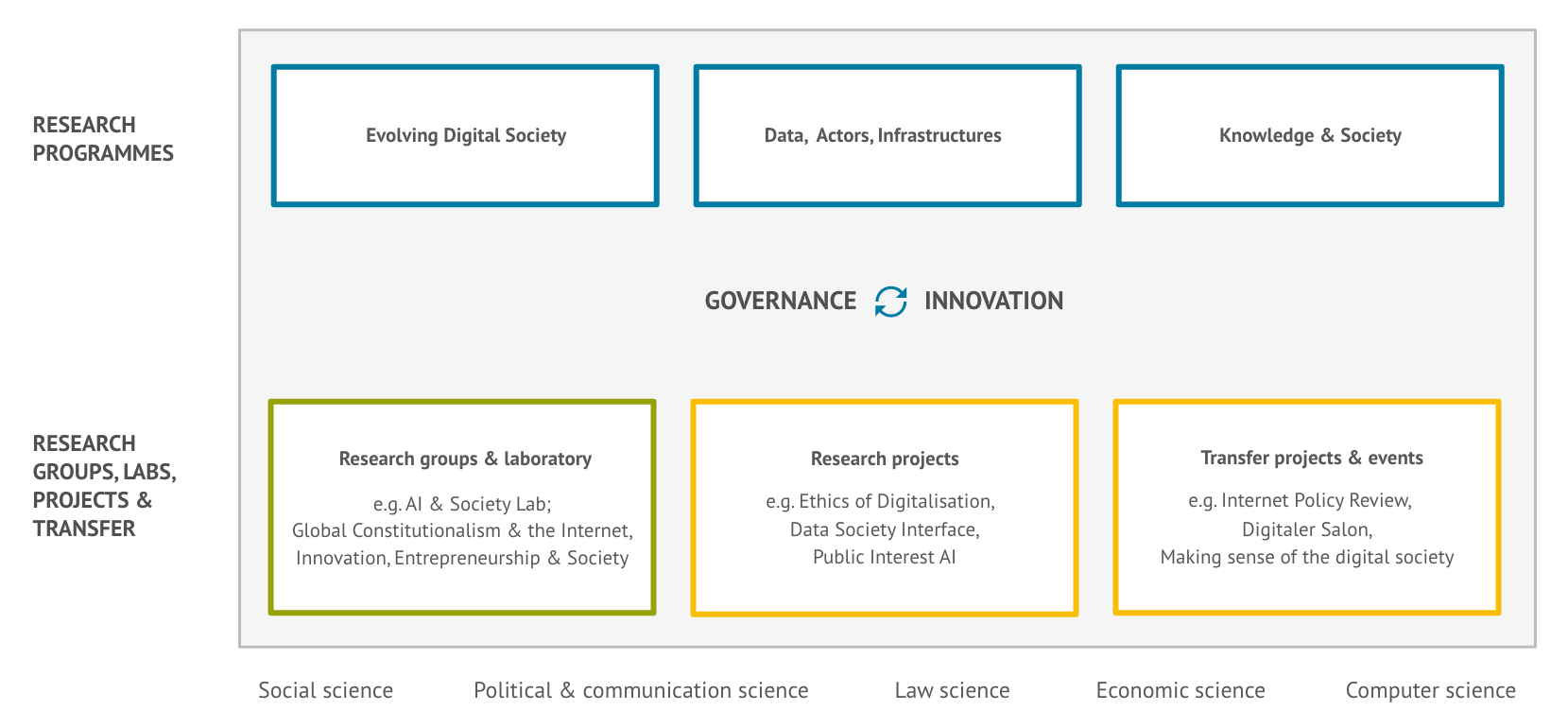
Analysing the relationship between innovation and governance, HIIG has developed three long-term research programmes. They are driven by broad research questions reflecting the institute’s disciplines and provide the framework for the research activities at HIIG:
Larger research groups develop their own thematic focus to strengthen disciplinary competences in individual areas. Our inter- and transdisciplinary research laboratories work at the intersection of academia, industry and civil society. With their research, they contribute to the agenda of the three research programmes:
Science communication projects foster a productive dialogue between academia, politics, industry and civil society:
Individual research projects complement and strengthen our research. They also serve to conduct short-term studies and provide reliable results on current topics.
- All
- AI
- Entrepreneurship & innovation
- Media & data
- Politics & law
- Science & education
- Science engagement
- Society & culture
A media theory of the humanoid robot – Artificial intelligence in Japanese and European interpretations
In this project, the humanoid robots in Japan in particular will be examined with the aim of working out the realities of AI.
Acquisition logic as an obstacle to Diamond Open Access
The research project is investigating how Diamond Open Access publication model can be organised in Germany in the long term.
Action for Interactive Anti-Polarisation Learning Experiences for a Better Democracy
The ACTILPEX consortium provides students and other interested parties with the tools to understand mechanisms of polarisation and to counteract them.
Autonomous Weapon Systems
The project investigates how autonomous weapon systems (AWS) are discussed in different concepts of human-machine interaction.
Capacities and competencies in dealing with hate speech and hostility towards science
This project develops strategies to make the science system more resilient to high publicity negative statements.
Cybersecurity
The project explores the important, both mutually beneficial and conflict-prone relationship between cybersecurity and privacy. It also aims to find common ground for regulating cybersecurity issues.
Data & Smart City Governance using the example of air quality management
The project is developing a data governance model with which administration, business and civil society can work together on data utilisation and processing in the smart city for the common good.
Data & Society Interface
How can we make data from private and public organisations usable for scientific purposes and for the general good of the society, and still take legal, ethical, economic or organisational challenges into account?
The project aims to develop an analytical research framework that can be used to describe data governance structures in a uniform manner and compare their success factors.
Defining concepts of the digital society
This project seeks to substantiate the conceptual ambition of the research programme The Evolving Digital Society by curating a set of reference articles on key notions and concepts.
Digital Social Innovation & Entrepreneurship
In the “Digital Social Innovation & Entrepreneurship” research project, we investigate entrepreneurial organisations that primarily focus on society – often called social enterprises.
DSA research network
This project supports and improves the implementation of the Digital Services Act (DSA) through cooperative research and networking.
DUCAH @ HIIG
The Digital Urban Center for Aging and Health (DUCAH) is an initiative of the Internet and Society Foundation and the Einstein Center for Digital Future.
Generative AI in the world of work
This project investigates the significance of generative AI for individuals, organisations and occupational fields in the world of work.
Human in the Loop?
Das Projekt entwickelt intersektionale Fragen zur Gleichstellung. Mit unserem Fokus auf den Aufbau von Netzwerken für und von Frauen* unterstützen wir den kulturellen Wandel des Technologiesektors in vier Ländern.
Increase corporate political responsibility and accountability of digital platforms
This project examines the growing corporate power of platform capitalism and its hegemony on several spheres of European society.
HIIG is involved in two of the projects as part of the BMFTR funding programme “Making Repositories and AI Systems Usable in Everyday Nursing Care”.
Organisational Resilience and Creativity: Exploring the Future of Educational Technology
How can educational technology be creatively contribute to building resilient universities and equip them to cope with future change?
Platform governance
Platforms have installed themselves as key intermediaries in contemporary societies. They re-organise communication and politics, mobility and travel, work and everyday life. Yet, with this change controversies arise.
Publication: Internet Policy Review
The Internet Policy Review is an open access, fast track and peer-reviewed journal on Internet regulation. It tracks public regulatory changes, as well as private policy developments which are likely to have an impact on European societies.
Repository for scientific policy and society advice
Political decisions are increasingly based on empirical research results. The project makes advisory documents specifically searchable and develops quality standards.
Safe in data traffic: Everyday illustration of fundamental rights at risk
Das Projekt erarbeitet Strategien, um das Wissenschaftssystem widerstandsfähiger gegen Hassrede & Wissenschaftsfeindlichkeit zu machen.
The project investigates the discourse and developments around AI’s “deep learning revolution” over the ten formative years.
Strengthening Digital Skills through Micro-Credentials
In a rapidly changing labour market, micro-credentials offer a flexible solution for new learning and training pathways. These will be developed in this transfer project on AI and data.
Task Force: Digital Organizing
The task force Digital Organizing is a group of researchers who study the implications of digital practices for the processes of organizing.
Task Force: European Platform Economy
The “Task Force European Platform Economy” is a group of HIIG researchers who study the implications of global platformisation for European actors and institutions.
The Public International Law of the Internet
The research project “The Public International Law of the Internet” at HIIG aims at redefining the relationship between human rights law and the internet.
Theorising digital societies
Das Forschungsprojekt erforscht die gegenwärtigen Herausforderungen, die sich durch Digitalisierungsprozesse ergeben.
- All
- AI
- Entrepreneurship & innovation
- Media & data
- Politics & law
- Science & education
- Science engagement
- Society & culture





